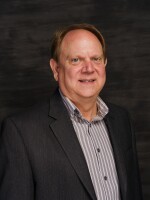Fifty-three years ago, acting on a request from Congress, President John F. Kennedy declared the third week of March the National Poison Prevention Week, to educate people at large about poisoning. Yet, in spite of more than 50 years of proactive awareness campaigns, poisoning is now the leading cause of deaths in the United States.
The statistics are frightening, and damning. More than two million potential exposures to poison or poisonous substances are reported to poison centers in the U.S. every year, of which, more than 90 percent are related to substances found at home. Children under five are the most vulnerable group, by far.
The groups involved though, are doing stellar work, against the odds. For the past 20 years, the South Texas Poison Center at the UT Health Science Center San Antonio has been taking calls from people needing immediate help, and provides free, confidential services in 47 counties, 24 hours a day, seven days a week.
It receives about 200 calls a day from people exposed to some sort of poison, according to assistant director Lizette Villarreal. “Some of the most common calls are always going to be children getting into things, especially those under the age of five — getting into their parents’ medication, or grandparents’ medication. And of course we have our hot topics, which are currently synthetic marijuana and energy drinks,” said Villarreal.
The most common exposures are pain relievers, household cleaning substances, and cosmetics.
Seventy percent of the time, the patient can be safely managed at home without a trip to the hospital. “The better option is to remain as calm as possible, especially if the patient is alert and awake, and go ahead and call our poison center and let our poison specialists triage the call,” said Villarreal.
The specialists also speak Spanish. The number again is 1-800-222-1222 or 1-800-222-1222 (TTY) for those who are deaf or hard or hearing. People would be advised to keep it handy.



